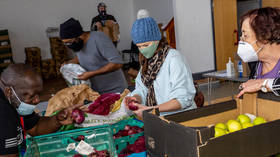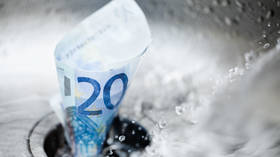UK food bank users declining potatoes over cooking costs – reports

Rising energy prices in Britain have seen some poorer citizens turn down potatoes offered at food banks as they cannot afford to boil them, the head of Iceland Foods Ltd supermarket chain has claimed.
In an interview with the BBC Radio 4 Today program on Wednesday, Richard Walker said the “cost of living crisis is the single most important domestic issue we are facing as a country.” He cited reports from some food banks that users are “declining products such as potatoes and other root veg because they can’t afford to boil them.”
Walker said food price inflation was “pushing 10%” – an estimate remarkably higher than the 5.1% annual figure provided by the Office for National Statistics. The supermarket chain boss pointed out that price hikes have been particularly evident when it comes to items such as milk, whose production involves several stages, with the cost of every part of the process rising.
He concluded that high food prices were here to stay and that it could be argued that, systematically, “Food has been too cheap for too long.” He said the pressure on chains was “relentless and coming at us from all angles” as they tried to keep prices down.
Explaining the ballooning costs, he blamed rising oil prices, worker shortages, and the falling supply of Russian fertilizers and Ukrainian sunflower oil over the past month.
Walker suggested that the UK government could implement measures to take the heat off retailers. He urged that the energy price cap on households could be extended to businesses, which he said would translate into some £100m in savings on consumers. He also called on authorities to postpone the introduction of the planned increase in national insurance, as well as some new environmental taxes.
Following Russia’s military offensive against Ukraine, which began on February 24, gas and oil prices – a large proportion of which is being supplied to Europe from Russia – have shot up dramatically, resulting in higher energy bills both for individuals and businesses across Europe.













